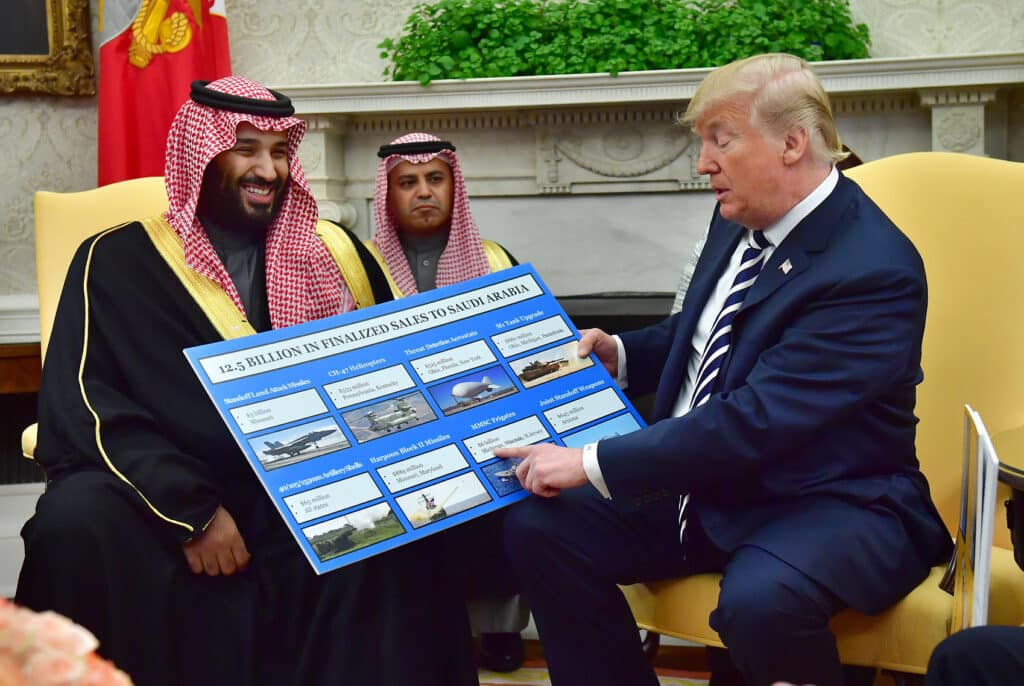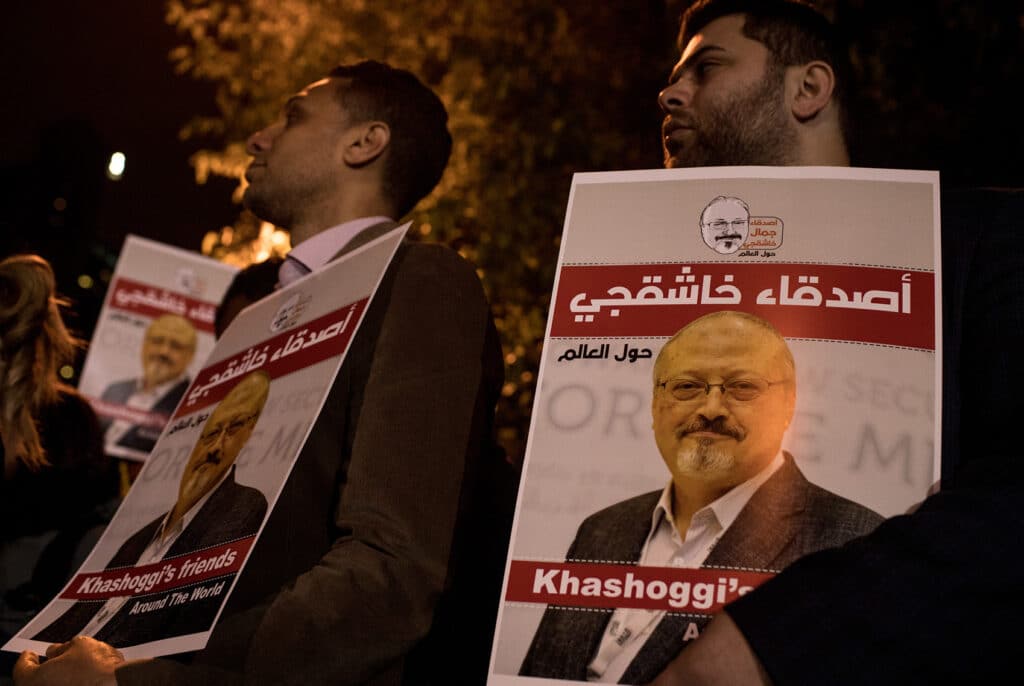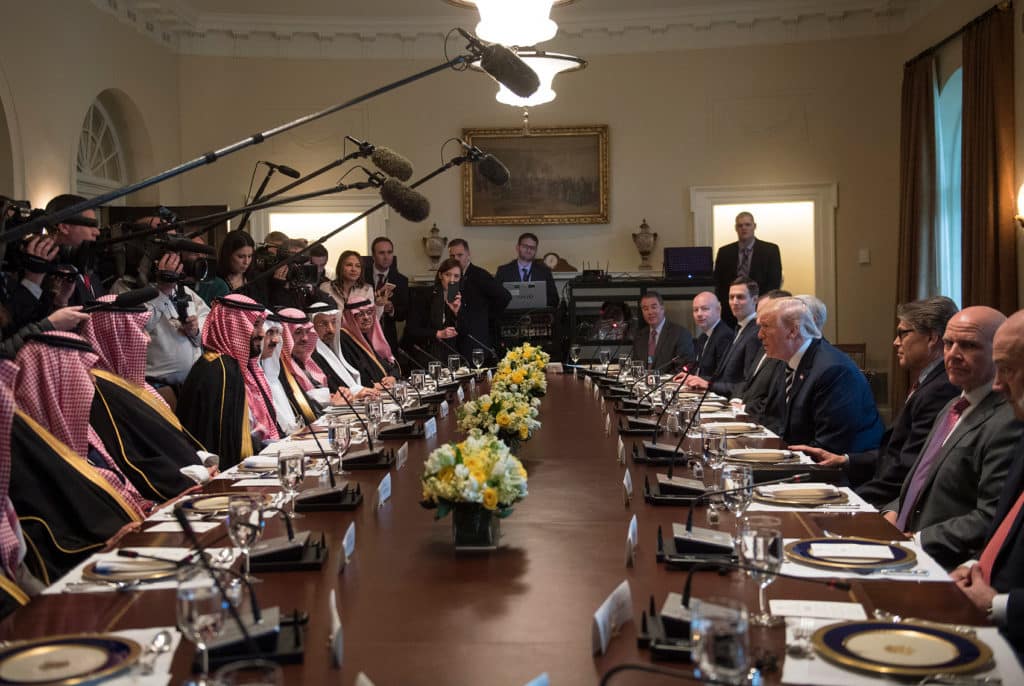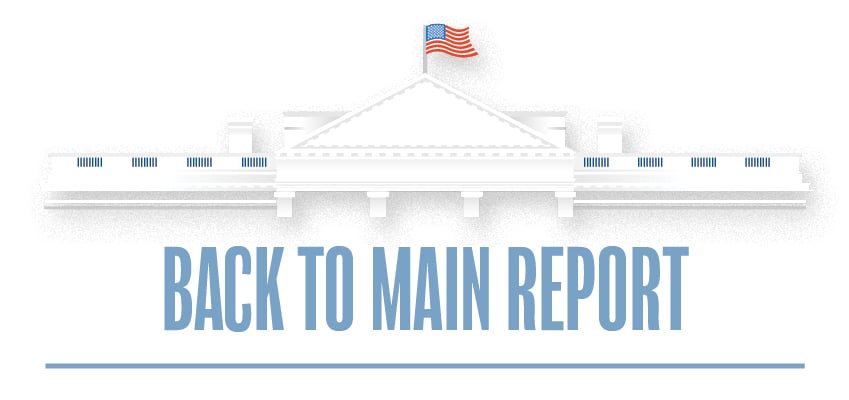January 31, 2019 |
Midterm Assessment: Saudi Arabia
Contents
January 31, 2019
Midterm Assessment: Saudi Arabia
Current Policy
The Trump administration sought to rebuild a strong U.S.-Saudi partnership after ties deteriorated under President Barack Obama. Saudi confidence in U.S. reliability had been rocked by Obama’s campaign to improve relations with Iran, the kingdom’s arch enemy, culminating in the 2015 nuclear deal, officially known as the Joint Comprehensive Plan of Action (JCPOA). But Trump’s efforts to strengthen relations with Riyadh suffered a serious setback in late 2018 after Saudi officials murdered journalist Jamal Khashoggi in the kingdom’s Istanbul consulate.
Upon entering office, Trump identified Iran as the greatest threat to U.S. interests in the Middle East. He condemned the JCPOA as the worst deal ever, withdrew from the accord, and re-imposed crippling sanctions. Simultaneously, Trump made clear that a revitalized partnership with Riyadh would be a cornerstone of his strategy to counter Iran, combat terrorism, and promote Arab-Israeli peace.
Trump’s outreach to the Saudis was marked by its focus on Prince Mohammed bin Salman, or MBS, the son of the Saudi monarch, King Salman. Although just the third-ranking official in the Saudi hierarchy when Trump assumed office, MBS in March 2017 became the first Saudi leader invited to Trump’s White House – overstepping the elderly king, whose ability to travel was constrained, but also Crown Prince Mohammed bin Nayef (MBN), the kingdom’s longtime interior minister.
Saudi Arabia was the first foreign country that Trump visited as president. The Saudis put on a lavish welcome, assembling more than 50 Muslim heads of state for a summit at which Trump urged Muslims to combat both Sunni terrorism and Iranian aggression. Of particular importance to Trump’s “America First” policy were Saudi trade and investment pledges purportedly worth hundreds of billions of dollars.
A month later, in June 2017, Trump’s bet on MBS appeared to pay off when King Salman elevated him to the role of crown prince, sacking MBN. The administration welcomed the change, clearly seeing MBS as a strong, modernizing leader and valuable partner.
Despite concern over the rising humanitarian toll of the Yemen war, the administration maintained support for the Saudi-led fight against Iranian-backed Houthi rebels. It pushed Riyadh to help counter Iranian influence in Iraq. It sought Saudi support to stabilize parts of Syria liberated from the Islamic State. It encouraged expanding Saudi ties with Israel. And in advance of oil sanctions on Iran, Trump pressed Riyadh to prevent a price spike by increasing production to cover lost Iranian exports.
In the face of several highly controversial actions by MBS, the administration was largely passive. There was no serious push back when MBS launched a boycott against Qatar; kidnapped Lebanon’s prime minister; detained hundreds of prominent Saudis in Riyadh’s Ritz Carlton Hotel; jailed women activists who had previously advocated for MBS’ most notable social reform – allowing women to drive; and triggered a crisis with Canada over tweets by its foreign ministry criticizing the detention of human rights activists.
The administration’s ability to stand aloof from MBS’ mounting controversies collapsed after Khashoggi’s murder last October. A vocal MBS critic, Khashoggi was a U.S. resident and contributing columnist at The Washington Post. Trump struggled to develop a response that would balance the need to hold Saudi Arabia accountable without endangering the strategic partnership. After the CIA concluded that MBS had foreknowledge of the assassination, Trump stated “maybe he did and maybe he didn’t,” and pledged to stand with Riyadh regardless.1 The response incensed members of Congress who proceeded to advance legislative initiatives to cut off support for Saudi efforts in Yemen and condemn the crown prince.

U.S. President Donald Trump holds up a chart of military hardware sales as he meets with Crown Prince Mohammed bin Salman of the Kingdom of Saudi Arabia in the Oval Office at the White House on March 20, 2018 in Washington, DC. (Photo by Kevin Dietsch-Pool/Getty Images)
Assessment
The Trump administration succeeded in its initial effort to overcome the downward spiral in U.S.-Saudi relations triggered by Obama. The decision to counter Iran by strengthening relations with Saudi Arabia resulted in a rapid improvement in ties and several worthwhile achievements.
Perhaps most important for Trump and his “America First” policy, MBS quickly directed major commitments of wealth to the American market, both in the form of arms purchases and investments.2
Even before the Khashoggi murder, events like the mass detentions at the Ritz and the roundup of innocent women’s rights activists tarnished MBS’ modernizing image. Abroad, his inept prosecution of the war in Yemen and the stalemated spat with Qatar raised serious doubts about his utility as a reliable U.S. partner.
Geopolitically, at U.S. urging, the Saudis made a sustained effort to improve relations with Iraq as part of a strategy to counterbalance Iran.3 In Syria, the Saudis responded to Trump’s demands for greater burden sharing by committing $100 million to help finance the stabilization of areas liberated from the Islamic State.4 With respect to Israel, MBS supported the expansion of Saudi links to the Jewish state and spoke publicly of their shared interest in countering Iran.5 MBS also reportedly pressed Palestinian leaders to cooperate with U.S. peace efforts.6 Finally, on the U.S. priority of pressuring Iran, Trump succeeded in getting the Saudis to ramp up oil production quickly, by roughly a million barrels per day, to cover lost Iranian exports and avoid a damaging price spike.7
On the domestic front, MBS undertook a series of reforms that Washington had long advocated as important for Saudi long-term stability. As part of his Vision 2030 program, MBS slashed subsidies, opened jobs to women, lifted the ban on women driving, introduced Western entertainment, reined in the religious police, and denounced extremist Islam.8
But MBS also increasingly undertook initiatives that were viewed as deeply reckless. Even before the Khashoggi murder, events like the mass detentions at the Ritz and the roundup of innocent women’s rights activists tarnished MBS’ modernizing image. Abroad, his inept prosecution of the war in Yemen and the stalemated spat with Qatar raised serious doubts about his utility as a reliable U.S. partner.
Almost all these controversies caught the U.S. by surprise – despite the fact that American interests were deeply implicated. The repeated failure of the Trump administration to hold MBS accountable gave him license to indulge his worst instincts. With rare exception (buying more weapons, pumping more oil), Trump largely chose to forego exercising America’s enormous leverage over the kingdom to define a more positive U.S.-Saudi agenda. Instead, his hands-off approach was interpreted by MBS as a blank check to pursue counterproductive tangents. The crisis that erupted after Khashoggi’s murder consolidated the impression that Trump had allowed the relationship to spin out of control.

People take part in a candle light vigil to remember journalist Jamal Khashoggi outside the Saudi Arabia consulate on October 25, 2018 in Istanbul, Turkey. (Photo by Chris McGrath/Getty Images)
Recommendations
In the wake of the Khashoggi debacle, a major course correction is needed in U.S. policy toward Saudi Arabia. Trump’s instinct to revive the U.S.-Saudi partnership and take advantage of MBS as a potentially transformational leader was not inherently wrong. But its execution has been deeply flawed.
- Exercise stricter oversight of the relationship. Assuming MBS survives the Khashoggi crisis, the U.S. can no longer afford to leave him alone to commit repeated unforced errors that endanger U.S. interests. After nearly two years of not having a U.S. ambassador in Riyadh, Trump’s appointment of retired General John Abizaid in November was an important step. Trump should ensure that he is fully empowered as his personal representative to the Saudi leadership who can authoritatively convey U.S. interests, set redlines, and act as an early warning system for avoiding crises.
- De-personalize the strategic partnership. Trying to manage U.S.-Saudi relations solely through MBS has proven sub-optimal. In light of America’s wide-ranging geopolitical interests in the kingdom, the relationship should be based on regularized consultations between senior officials across both governments with the expertise and authority to develop common strategies, manage differences, and drive forward a mutually beneficial agenda.
- Leverage MBS’ need for U.S. support to advance key U.S. objectives. So long as MBS remains the kingdom’s preeminent decision maker, the administration should preserve its ability to work with him. But it should not absolve him of responsibility for the cloud that rightly hangs over his leadership. MBS has been weakened by the Khashoggi affair and needs U.S. restraint not to undermine his standing further. Trump should exploit that vulnerability and demand systematic action from MBS to address core U.S. concerns, starting with efforts to clean up the messes that he’s created – including helping to de-escalate the war in Yemen, cooperating with U.S.-led mediation of the Qatar crisis, and releasing detained human rights activists. Trump should also press Riyadh on further steps to advance U.S. priorities in weakening Iran, expanding Arab-Israeli cooperation, and reversing the disastrous consequences of the kingdom’s decades-long propagation of radical Wahhabism. The administration’s aim should be recalibrating its relationship with MBS to ensure that Saudi Arabia emerges as a far more chastened, restrained, and reliable U.S. partner.
- Reduce dependence on oil. The Khashoggi crisis has again exposed the distasteful reality that America’s strategic interest in maintaining strong ties to Saudi Arabia frequently comes at a high cost to American values. Much of the kingdom’s leverage remains inextricably tied to the critical role it plays in international oil markets. If the U.S. is serious about fundamentally changing the dynamic of its relationship with Riyadh, it should adopt a national strategy to dramatically reduce oil’s monopoly over the U.S. transportation sector.

U.S. President Donald Trump holds a working lunch with Crown Prince Mohammed bin Salman of the Kingdom of Saudi Arabia in the Oval Office at the White House on March 20, 2018 in Washington, DC. (Photo by Kevin Dietsch-Pool/Getty Images)
